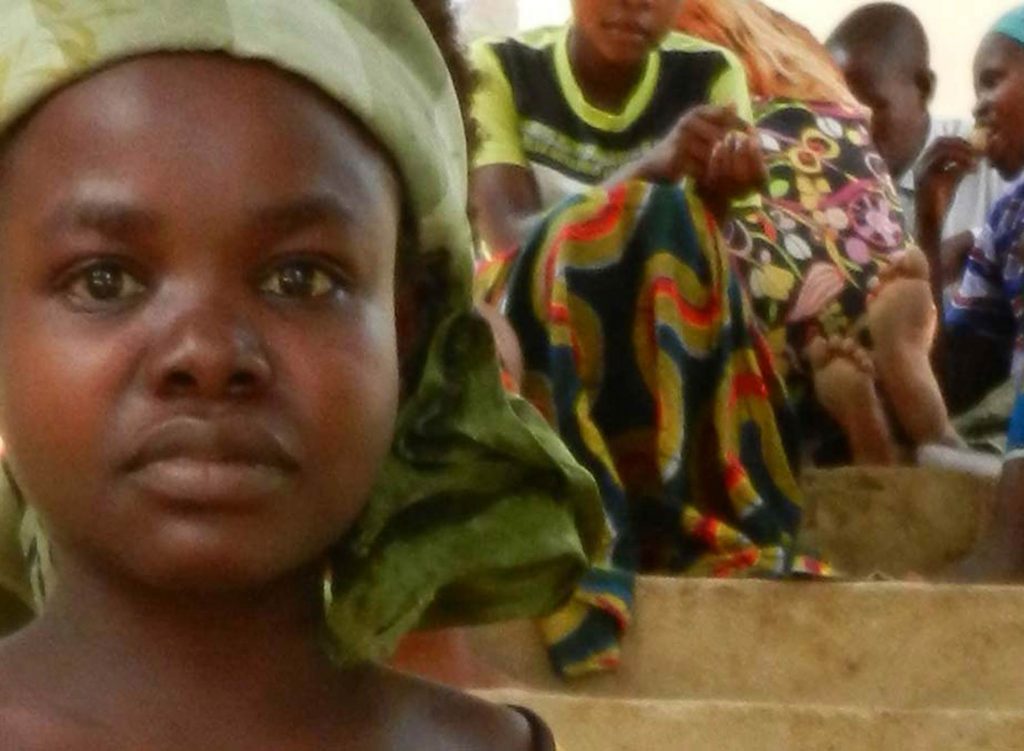Esperance Cirhuza, 28, is a mother and a wife living in Kivu province in the Democratic Republic of Congo (DRC), a notorious place for violence against women. The following is Esperance’s firsthand account of how an International Medical Corps program that engages men in a peer-to-peer discussion group changed her life for the better.
I have been married to my husband for five years now and have two children. My husband used to have no consideration for me. I had no right to refuse sex when he wants it, otherwise I will be beaten. He always came home very late, smelling of alcohol. I could not ask any question about this.
My husband is a teacher and one day when I asked to know his salary, he responded that I have no right to know his salary. When I tried to start my own little business to bring in some income, he confiscated my money and I had to stop. I struggled in this situation for four years. I could not share my experience with anyone and I was suffering in silence.
One day this year, the chief of our village came home and talked with my husband about International Medical Corps’ activities in our community. The following day, my husband went to an International Medical Corps Men’s Discussion Group meeting. I was excited when my husband registered in this group.
Two weeks later my husband came home earlier than usual at 7pm, so I thought he was sick or something. Some weeks later I was surprised when one day I saw my husband bathing our child while I was in the kitchen. I feared and thought he was going to send me away and bring in a new wife. He explained to me that he is learning good things in the group he joined and is trying to change.
However I was not convinced. He invited their facilitator home to explain to me what they were learning. He said it is important I believe my husband and support him. My husband started sharing with me the subjects they discussed during the week. One day, three months later my husband asked me to invite our children to have dinner together. After dinner he asked me and the children to forgive him for his bad behavior and promised to be a very good husband and father. Then he showed me his payroll. I could not believe. I was so surprised that I cried.
Since that day, I was convinced and our family lives in peace. My husband gave me money and I am selling shoes. I thank International Medical Corps for this miracle in my life and in my household. I recommend that this approach be spread everywhere to help other women to regain joy like me.
International Medical Corps has been operating sexual and gender-based violence (SGBV) programs in DRC since 2003. One such approach in this program engages men in a series of group discussions about SGBV issues. The discussions last 16 weeks and are moderated by trained facilitators. During group sessions, the men learn about the realities of SGBV and to recognize the negative consequences. The men then work together on a plan they can implement to prevent SBGV in their own community. They are role models for all men, young and old, in their communities.
